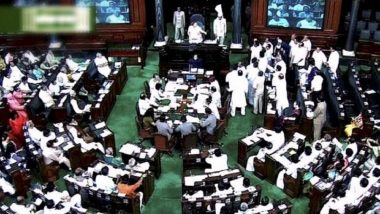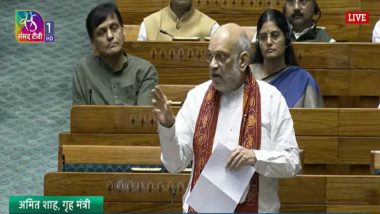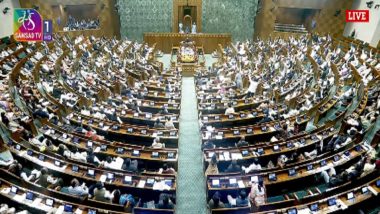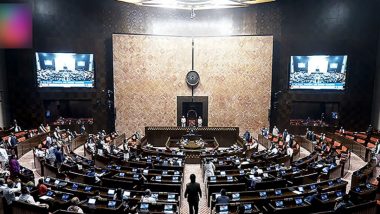New Delhi: A crucial bill seeking to provide death penalty to those convicted of raping girls below the age of 12 years was passed by the Lok Sabha today. The bill seeks to replace the Criminal Law (Amendment) Ordinance promulgated on April 21, following an outcry over the rape and murder of a minor girl in Kathua in Jammu and Kashmir and the rape of another woman at Unnao in Uttar Pradesh.
Although the Criminal Law (Amendment) Bill 2018 was supported by most members across the political spectrum and passed by a voice vote, some in the Opposition objected to the government adopting the ordinance route to enact the law. Several amendments moved by the opposition members were also negated by voice vote.
Replying to an over two hour discussion on the measure, Minister of State for Home Kiren Rijiju said the stringent law was aimed at providing safety to minor girls. He said the existing Indian Penal Code provided for punishment to those convicted of raping a woman, but there was no provision for rape or gangrape of minor girls below 16 or 12 years of age. These are "very important provisions" which the government has proposed, Rijiju said.
He said the recent incidents of rape and gangrape of women below the age of 12 years has shaken the conscience of the entire nation. Therefore, the offences of rape and gangrape of women under the age of 12-16 years require effective deterrence through legal provisions of more stringent punishment, he said.
During the debate, Deputy Speaker M Thambi Durai, who was in the Chair, suggested that the provisions of the legislation be given maximum publicity, which would act as a deterrence. The Minister agreed to it. The bill stipulates stringent punishment for perpetrators of rape, particularly of girls below 12 years. Death sentence has been provided for rapists of girls under 12 years.
The minimum punishment in cases of rape of women has been increased from rigorous imprisonment of seven years to 10 years, extendable to life imprisonment, Rijiju said. According to the bill, in case of rape of a girl under 16 years, the minimum punishment has been increased from 10 to 20 years, extendable to imprisonment for rest of life, which means jail term till the convict's "natural life".
The punishment for gangrape of a girl below 16 years will invariably be imprisonm for the rest of life of the convict. Stringent punishment for rape of a girl under 12 years has been provided with the minimum jail term being 20 years which may go up to life in prison or death sentence. Gangrape of a girl under 12 years of age will invite punishment of jail term for the rest of life or death.
The measure also provides for speedy investigations and trial. The time limit for investigation of all cases of rape has been prescribed, which has to be mandatorily completed within two months. The deadline for the completion of trial in all rape cases will be two months. A six-month time limit for the disposal of appeals in rape cases has also been prescribed, the bill says, adding that there will also be no provision for anticipatory bail for a person accused of rape or gangrape of a girl under 16 years of age.
Participating in the debate, BJP member Kirron Kher said the bill was "well-timed" and provides hope for safer future for women. She said the opposition should not selectively highlight the case of child rape but speak about how to deal with the henious crime. She was referring to the issue of Kathua rape case which was raised by N K Premachandran (RSP) who had moved a statutory resolution to disapprove the ordina ordinance promulgated by the President on April 21 this year.
Premachandran said it was apalling that a minor girl was gangraped in a temple and brutally murdered thereafter. Kher said the bill deals with the current reality and lesser than death penalty in case of rape of minor girl cannot be justified. CPI(M) member P K Sreemathy Teacher asked the Centre to suggest to the state governments to utilise the Rs 3,000 crore Nirbhaya Fund to compensate the child victims.













 Quickly
Quickly




















